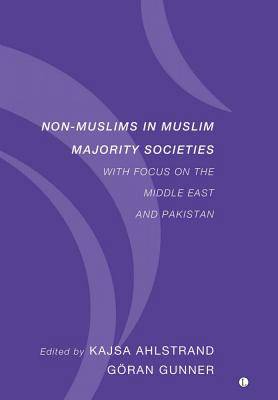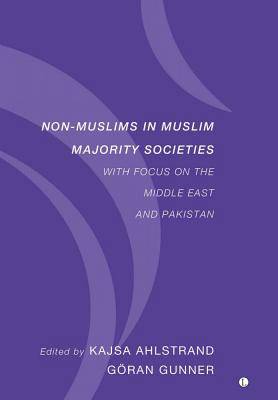
- Afhalen na 1 uur in een winkel met voorraad
- Gratis thuislevering in België vanaf € 30
- Ruim aanbod met 7 miljoen producten
- Afhalen na 1 uur in een winkel met voorraad
- Gratis thuislevering in België vanaf € 30
- Ruim aanbod met 7 miljoen producten
Zoeken
Non-Muslims in Muslim Majority Societies
With Focus on the Middle East and Pakistan
Paperback | Engels
€ 51,95
+ 103 punten
Omschrijving
In a world where almost all societies are multi-religious and multi-ethnic, we need to study how social cohesion can be achieved in different contexts. In some geographical areas, as in the Middle East and the Indian subcontinent, people of different religious belonging have, through the ages, lived side by side, sometimes in harmony and sometimes in dissonance. In other geographical regions, as in Scandinavia, societies have been quite religiously homogeneous but only recently challenged by immigration.In both locations the relations between religious minority and majority are very much on the agenda. In order to discuss the situation for non-Muslims in Muslim majority societies, a consultation was convened with both Muslim and Christian participants from Pakistan, Palestine, Lebanon, and Sweden. Some of the participants work in academic settings, others in faith-based organisations, some in jurisprudence and others with theological issues. Non-Muslims in Muslim Majority Societies is the result of thatconsultation. The intention of the book is to trigger reflection and further thinking, through papers that discuss issues such as freedom of religion, minority rights, secular and religious legislation, and inter-religious dialogue in Muslim majority societies. Although the articles are presented as 'works in progress' and remain tentative in many of their conclusions, this book is an important contribution to the global debate over religious tolerance and religious pluralism.
Specificaties
Betrokkenen
- Uitgeverij:
Inhoud
- Aantal bladzijden:
- 174
- Taal:
- Engels
Eigenschappen
- Productcode (EAN):
- 9780718892449
- Verschijningsdatum:
- 29/09/2011
- Uitvoering:
- Paperback
- Formaat:
- Trade paperback (VS)
- Afmetingen:
- 150 mm x 226 mm
- Gewicht:
- 226 g

Alleen bij Standaard Boekhandel
+ 103 punten op je klantenkaart van Standaard Boekhandel
Beoordelingen
We publiceren alleen reviews die voldoen aan de voorwaarden voor reviews. Bekijk onze voorwaarden voor reviews.










